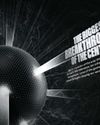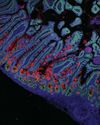
According to much of what we see on social media, in magazines and on TV, the fat on our bodies is something we need to either fight constantly with exercise and diet, or stop worrying about and celebrate. But in reality, our fat is far more than just a symbol of how healthy our lifestyle is, or of how body confident we may be.
Fat is one of the most important elements of our diet, and the fatty tissue beneath our skin plays a part in keeping us alive and healthy. In chemical terms, fats are long, chain-like molecules that have many roles across all forms of life on Earth. Among their many useful properties, they are an excellent way to store energy, and many organisms convert energy from the food they eat into reserves of fat - from the vegetable oils found in the seeds and fruits of plants, to the inches-thick layer of blubber beneath the skin of large marine mammals.
It is only in recent decades, as an abundance of energy-rich food has caused an epidemic of obesity worldwide, that this vital component of our diet has become so problematic. When we store too much fat, it causes the vital functions of our fatty tissue to start to fail, leading to many different health issues, from diabetes to stroke to fatty liver disease.
For most of human history, though, our ancestors were more preoccupied with dying from malnutrition and hunger than with looking toned and svelte, and our body fat was the energy store that saved people when food was scarce. In many non-Western cultures, animal fat remains something of a luxury food item, or even a delicacy.
WHAT IS FAT?
This story is from the August 2022 edition of BBC Science Focus.
Start your 7-day Magzter GOLD free trial to access thousands of curated premium stories, and 9,000+ magazines and newspapers.
Already a subscriber ? Sign In
This story is from the August 2022 edition of BBC Science Focus.
Start your 7-day Magzter GOLD free trial to access thousands of curated premium stories, and 9,000+ magazines and newspapers.
Already a subscriber? Sign In

THE WORST IDEAS OF THE 21ST CENTURY
NOT ALL IDEAS CAN BE HITS. ALONGSIDE GROUND-BREAKING INNOVATIONS, 21ST-CENTURY SCIENTISTS HAVE HELMED THEIR SHARE OF WILD TECH FLOPS, DUBIOUS THEORIES AND OVERHYPED BREAKTHROUGHS. HERE ARE THE BIGGEST TO FORGET

10 IDEAS THAT WILL SHAPE YOUR NEXT 25 YEARS
Predicting the future is considered a fool's game. But it's one many of us like to play.

THE BIGGEST BREAKTHROUGHS OF THE CENTURY
We're a quarter of the way into the new century. To mark this milestone, we asked the UK's top minds to highlight some of the game-changing scientific breakthroughs shaping our world since the year 2000

DO THE SCIENCE COGNITIVE SHUFFLE
Trouble sleeping? A lot on your mind? Use this trick and sedate your synapses

WHAT DETERMINES HOW MANY ABS I CAN GET?
Assuming you're a human being, you have exactly the same number of abs as everybody else: two.

HOW CAN I IDENTIFY MY PSYCHOLOGICAL BLIND SPOT?
In the 1950s two American psychologists, Joseph Luft and Harrington Ingham, proposed a way of thinking about psychological blind spots - things you don't know about yourself - that they called the 'Johari Window' (the term is a combination of their first names).

How can I change my personality?
Want to become more confident, extroverted or assertive? Science shows that with a few simple changes, you can unlock your best self

Could your cosmetics be harming your health?
Cosmetic companies are phasing out microplastics and so-called 'forever chemicals' to help protect consumers.

extraterrestrial US Congress is talking about activity again. Is the truth really out there?
Despite several testimonies, the question remains frustratingly unanswered

Map of 100 million human body cells revealed
Over three dozen new studies mark significant milestone towards complete Human Cell Atlas